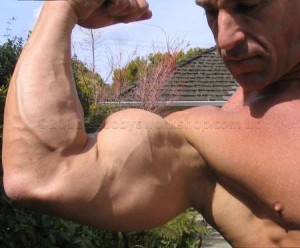Volunteers needed for muscle gain research!
- Want to help improve muscle gain prediction models?
- Are you willing to share your muscle gain data?
- Have you already taken accurate weight and bodyfat measurements over a period of at least a year or are you willing to do it?
The current models for predicting muscular gains are in the stone ages, and with this project lead by an Oxford mathematics graduate student at Sweat4Health, we hope to improve them. Your data will be used to make an accurate muscle gain prediction calculator at scoobysworkshop! YOU can make a difference!
If you want to help
If you want to help, here is what to do:
- Open a free account at Sweat4Health
- Go the the Muscle Gain Research Board and read the FAQ, and start your data collection thread, for example, “Bob’s muscle gain data”
- If you already have this data, just fill out the spreadsheet attached to the FAQ. If you will be logging data as you workout over the next year, post it weekly to your thread.
Predicting muscle gains
Purpose: To find a simple model that describes muscle gains during resistance training.
Method: I will fit a function to the data collected. As muscle gains are known to decrease over time, a good starting point will be to try to model it with an exponential decay function. If it is true that the amount of mass that an individual can expect to gain is proportional to how much mass he or she currently has, exponential decay will be a good description.
As I start I will read about the models used to describe weight and length increase in children and teens. One model uses three different logistic growth functions for early childhood, puberty and young adulthood. I might try to fit a logistic curve to the data as well, based on what I learn.
Data: The data need to contain some measure of muscle mass and a date. It can be body weight and body fat percentage, or FFMI and length. Dates or time passed since start will work as time-scales. The model will describe muscle gains as a function of time, so mass and time will be the necessary components.
If a participant did not take measurements from the very start, but knows how long ago he or she started and can approximate the weight and body fat at the start, that would work too.
The times of measurement does not need to be evenly distributed, but I think a minimum of 4 measurements is a reasonable lower limit.
It would also be good if every participant can describe the method used to measure muscle mass (scale, scale and tape, scale and caliper etc.) as well as give his or her experience of how accurate the measurement was on a scale from 1 to 5. If a participant knows for sure that he or she is new to using a caliper it is good to say so. It might be used to correct possible errors.
The last thing would be that participants grade their effort put into gaining muscle, one a scale from 1 to 5, where a description of each grade is given.
Optional data are, but not limited to: gender, age, workout routine, diet plan, satisfaction with the progress, and a description of the history related to the data (for example if the person was bulking/cutting, possible sickness, and how he or she experienced the progress).

